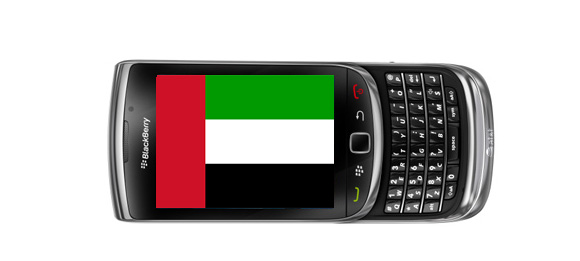
If you’re planning a trip to Dubai in October and plan to keep in touch with your friends and colleagues with BIS and BBM, well you can very well forget about it or consider doing all your mobile stuff on another device that’s not a BlackBerry.
The Emirates’ telecoms regulator have confirmed that travelers to the city-state of Dubai and the important oil industry center of Abu Dhabi will — like the 500,000 local subscribers — have to do without BlackBerry e-mail, messaging and Web services starting October 11, even if their BlackBerrys are supported by carriers from other countries.
This doesn’t bode well for the country’s ambitions to be a business and tourism haven considering that about 100,000 travelers pass through Dubai’s airport every day, making it the busiest in the Middle East. The new restrictions could leave time-pressed business travelers hurrying through, many of them changing planes for other destinations, without access to their e-mail or the Web. That would put BlackBerry services out of reach for business travelers and others passing through the busy Mideast airport hub of Dubai, which handled 40.9 million passengers last year.
The good thing is, unlike the infamous camera phone ban in Saudi Arabia circa the mid noughties, travellers into Dubai and Abu Dhabi are still allowed to carry their BlackBerrys into the country and they can still make phone calls with the devices.
The ban in the BlackBerry service is based on security concerns raised by UAE authorities as to how BlackBerry data are handled. Currently all the data passing from BlackBerry devices are automatically shipped to company computers abroad, making it difficult for local authorities to monitor for illegal activity or abuse.
Interestingly, this is not the first time singled out BlackBerry devices for scrutiny.
Last year, RIM criticized a directive by the UAE state-owned mobile operator Etisalat telling the company’s BlackBerry users to install software described as a service upgrade. Tests showed the download actually installed spy software on users’ phones that could allow authorities to access private information stored on the handsets. It strongly distanced itself from Etisalat’s decision and told users how to remove the software.
Though the UAE has made it clear that it will lift the ban if RIM comply with the country’s regulations.
Meanwhile in Malaysia, we’re still waiting on the final word to the to ban or not to ban question from the Minister of Information, Communication and Culture, Rais Yatim. The minister made a statement last week saying that his ministry will be evaluating information gathered from the Malaysian Communications and Multimedia Commission before making a decision on whether a BlackBerry ban in Malaysia is necessary. He stated that the report will be ready sometime last week but till now, no follow up statements on the topic has been made.
[source]






